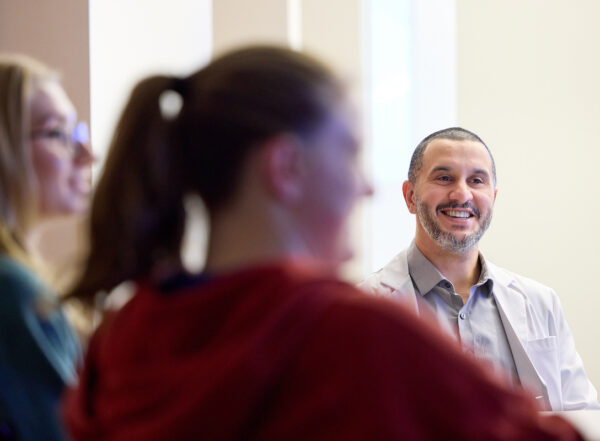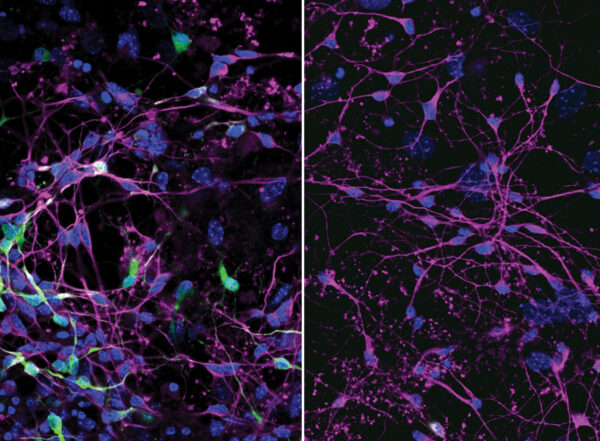Washington University researchers to present findings at national neurology meeting
New research on Alzheimer’s, stroke, sleep to be presented in St. Louis
 Getty Images
Getty ImagesResearchers from Washington University School of Medicine in St. Louis will present their findings on topics such as dementia, regenerative medicine and sleep at the annual meeting of the American Neurological Association in St. Louis from Oct. 13-15.
A way of imaging the brain during sleep that may lead to sleep-based stroke rehabilitation therapies. The role of the gene APOE4 – the largest risk factor for Alzheimer’s disease – in Parkinson’s disease dementia. New data on the accuracy of a blood test for Alzheimer’s that can detect signs of disease before symptoms develop. These and other studies will be presented by faculty and staff from Washington University School of Medicine in St. Louis at the American Neurological Association meeting in St. Louis from Oct. 13-15. Highlights include:
Presidential Symposium: Dominantly Inherited and Late-Onset Alzheimer’s Disease: Genetics, Biomarkers, Timecourse, and Treatments
9:15-11:30 a.m. Sunday, Oct. 13
The Presidential Symposium is chaired by David M. Holtzman, MD, the Andrew B. and Gretchen P. Jones Professor and head of the Department of Neurology, and John C. Morris, MD, the Harvey A. and Dorismae Hacker Friedman Distinguished Professor of Neurology and director of Washington University’s Charles F. and Joanne Knight Alzheimer’s Disease Research Center. This features the latest research into risks, diagnosis and treatment of Alzheimer’s disease. During the symposium, Randall J. Bateman, MD, the Charles F. and Joanne Knight Distinguished Professor of Neurology, will discuss how recent discoveries regarding the ways Alzheimer’s develops and progresses before symptoms arise could pave the way to new treatments. The session will close with a keynote speech from activist Kim Campbell, whose husband, famed country singer Glen Campbell, died of Alzheimer’s in 2017.
Dementia and Aging
Special Interest Group Session
3:30-5:30 p.m. Sunday, Oct. 13
Treatment options are extremely limited for Alzheimer’s and other dementias related to aging. Eric McDade, DO, an associate professor of neurology, chairs a session on biological processes that contribute to the risk of developing dementia and affect how the disease manifests. These processes may hold promise as new therapeutic targets. During the session, Holtzman will discuss how the toxic Alzheimer protein tau spreads through the brain and how immune cells and the gene TREM2 – a major risk factor for Alzheimer’s – influence the spread of tau in the brain.
Sleep Disorders and Circadian Rhythm
Special Interest Group Session
3-5 p.m. Monday, Oct. 14
Sleep and other daily cycles play a key role in the pathogenesis, manifestation and treatment of neurological disorders. This session, co-chaired by Yo-El Ju, MD, an associate professor of neurology, highlights new advances in sleep and circadian rhythm research. During the session, Brendan Lucey, MD, an assistant professor of neurology, will speak about the effect of sleep on tau, a brain protein linked to cognitive decline in Alzheimer’s and other diseases. Erik Musiek, MD, PhD, an associate professor of neurology, will present a data blitz on the connection between circadian rhythms and Alzheimer’s disease. The session is chaired by David Raizen, MD, PhD, of the University of Pennsylvania.
Optimizing Clinical Trial Design
Plenary Session
12:15-2:15 p.m Tuesday, Oct. 15
Every year, new experimental therapies for neurological conditions enter clinical trials. There is a pressing need to develop innovative study designs to maximize the likelihood of obtaining meaningful, informative results from such trials. In this session, chaired by Conrad “Chris” Weihl, MD, PhD, a professor of neurology, and co-chaired by Craig Zaidman, MD, an associate professor of neurology, speakers will discuss how to identify the most appropriate outcomes measures; account for the heterogeneity of the study population, including gender, ethnicity and genetic factors; and evaluate the limitations of clinical trial data in regards to efficacy.






